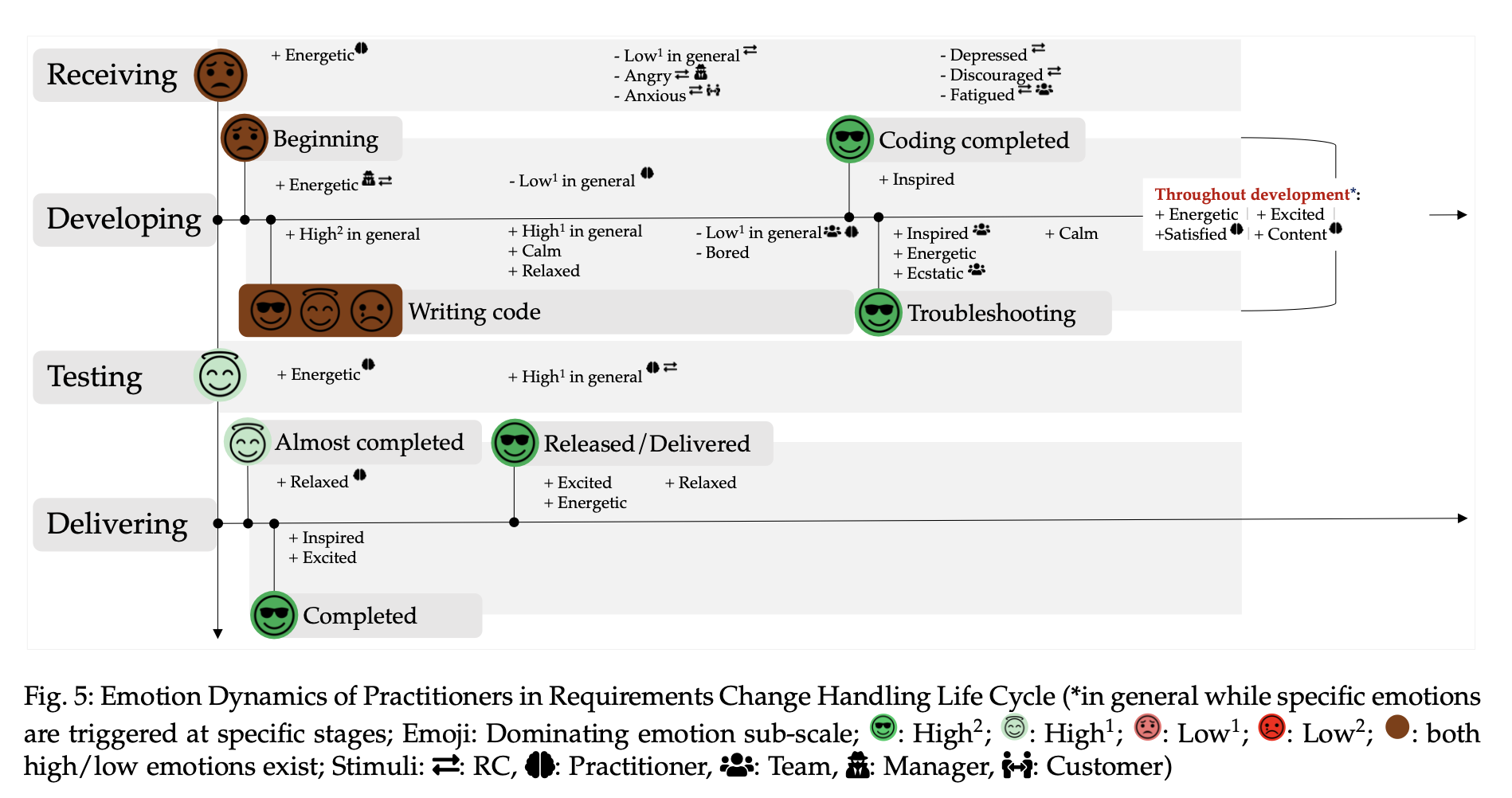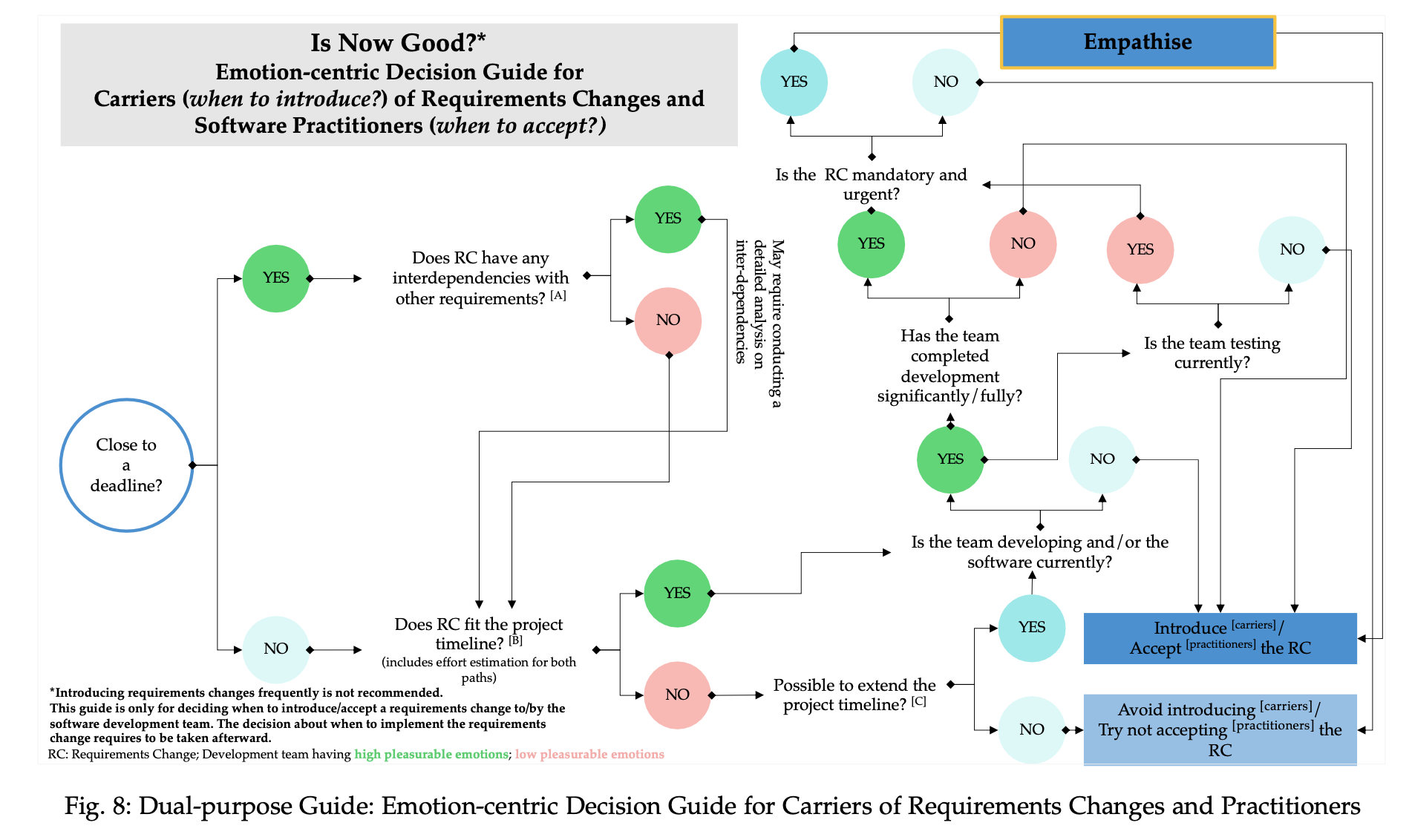The Emotional Roller Coaster of Responding to Requirements Changes
Reviewed by Greg Wilson / 2023-03-03
Keywords: Emotion, Requirements
How do you feel when someone asks you to make a change in your software just before you're about to deploy it? How do you feel when you're making that change, or when that change goes into production? And how should the way requirements changes make developers feel affect the development process? Most books about software engineering don't even ask these questions, much less answer them, but researchers have started to do both. This paper used a survey and a standard psychological instrument to find out developers react when life goes sideways in both agile and non-agile teams, and used that to create a decision-making aid. It's a first step, but a very welcome one, because to paraphrase Dobzhansky, "Nothing in software engineering makes sense except in light of human psychology."


Kashumi Madampe, Rashina Hoda, and John Grundy. The emotional roller coaster of responding to requirements changes in software engineering. IEEE Transactions on Software Engineering, 2022. URL: https://doi.org/10.1109/tse.2022.3172925.
The authors have made their questionnaire and data available for replication.
Background: A preliminary study we conducted showed that software practitioners respond to requirements changes (RCs) with different emotions, and that their emotions vary at stages of the RC handling life cycle, such as receiving, developing, and delivering RCs. Furthermore, such developer emotions have direct linkages to cognition, productivity, and decision making. Therefore, it is important to gain a comprehensive understanding the role of emotions in a critical scenarios like handling RCs.
Objective: We wanted to study how practitioners emotionally respond to RCs.
Method: We conducted a world-wide survey with the participation of 201 software practitioners. In our survey, we used the Job-related Affective Well-being Scale (JAWS) and open-ended questions to capture participants emotions when handling RCs in their work and query about the different circumstances when they feel these emotions. We used a combined approach of statistical analysis, JAWS, and Socio-Technical Grounded Theory (STGT) for Data Analysis to analyse our survey data.
Findings: We identified (1) emotional responses to RCs, i.e., the most common emotions felt by practitioners when handling RCs; (2) different stimuli—such as the RC, the practitioner, team, manager, customer—that trigger these emotions through their own different characteristics; (3) emotion dynamics, i.e., the changes in emotions during the RC handling life cycle; (4) RC stages where particular emotions are triggered; and (5) time related aspects that regulate the emotion dynamics.
Conclusion: Practitioners are not pleased with receiving RCs all the time. Last minute RCs introduced closer to a deadline especially violate emotional well-being of practitioners. We present some practical recommendations for practitioners to follow, including a dual-purpose emotion-centric decision guide to help decide when to introduce or accept an RC, and some future key research directions.